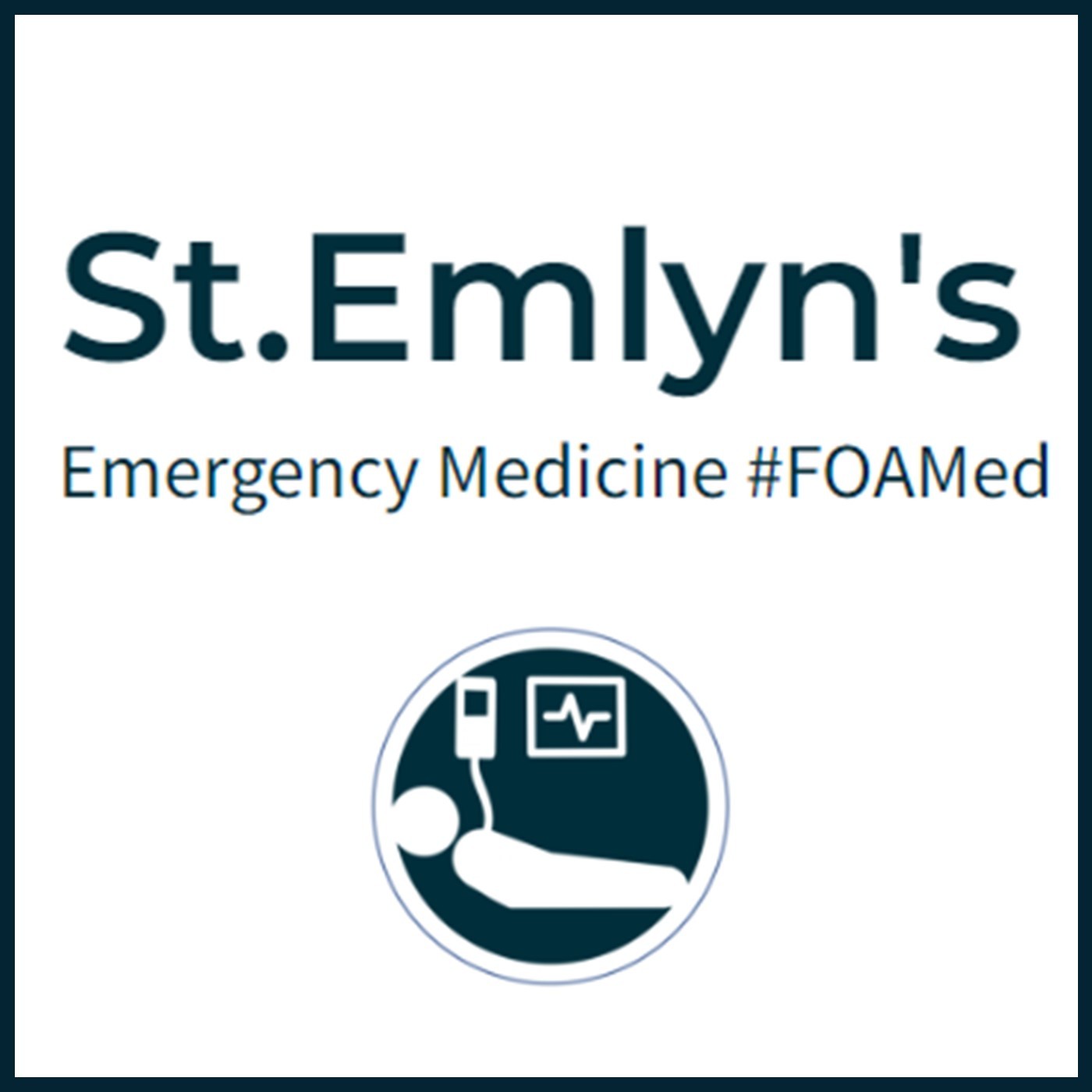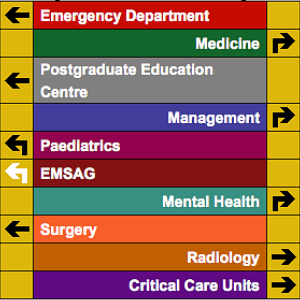
1.3M
Downloads
272
Episodes
A UK based Emergency Medicine podcast for anyone who works in emergency care. The St Emlyn ’s team are all passionate educators and clinicians who strive to bring you the best evidence based education. Our four pillars of learning are evidence-based medicine, clinical excellence, personal development and the philosophical overview of emergency care. We have a strong academic faculty and reputation for high quality education presented through multimedia platforms and articles. St Emlyn’s is a name given to a fictionalised emergency care system. This online clinical space is designed to allow clinical care to be discussed without compromising the safety or confidentiality of patients or clinicians.
Episodes

Tuesday Sep 10, 2019
Ep 144 - July 2019 Round Up
Tuesday Sep 10, 2019
Tuesday Sep 10, 2019
St Emlyn’s July 2019: Key Highlights
Welcome back to St Emlyn’s, where we continue to share the latest insights, discussions, and advancements in emergency medicine. July 2019 was particularly rich in content, covering a wide range of topics from practical clinical advice to deeper reflections on the ethics and philosophy of emergency medicine. Here, we summarize the key points from the month’s posts, optimized for clarity and relevance.
Upcoming Events: Resuscitology Course and MSc in Emergency Medicine
Before diving into the content highlights, there are two important announcements:
Resuscitology Course – December 2019
On December 14th, 2019, the Resuscitology course will be held in Manchester. This course, led by Cliff Reid, offers an in-depth exploration of why certain resuscitation techniques work and how they can be improved in high-stakes scenarios. This is a must-attend for anyone involved in emergency or critical care. Registration details are available on our blog.
MSc in Emergency Medicine – 2019-2020 Cohort
Recruitment is now open for the 2019-2020 cohort of the MSc in Emergency Medicine. This three-year online program, available to both doctors and nurses, offers an advanced curriculum in emergency medicine. Alumni like Janus Bae, Alan Grace, and Natalie May have found it immensely beneficial. By 2020, we hope to extend the program to paramedics as well, broadening its reach and impact.
July 2019 Blog Highlights
This month’s content ranged from clinical insights and research updates to philosophical discussions about the practice of emergency medicine.
Disaster Medicine in Pakistan: Lessons Learned
Zaf Kasim, now practicing in the United States, and Rashid Akhil from Pakistan collaborated on a blog post discussing the management of natural disasters, terrorist attacks, and major incidents in Pakistan. Zaf, who trained with us in Verchester, has become an authority in endovascular resuscitation, REBOA, and ECMO.
This post sheds light on the expertise developed by medical professionals in Pakistan, particularly in response to large-scale disasters like the 2005 Kashmir earthquake. It’s a crucial read for anyone interested in global health or disaster medicine, as it demonstrates how effective disaster response systems can be developed even in resource-limited settings.
Managing Major GI Hemorrhage: Practical Insights
Chris Gray revisited a talk he gave at the St Emlyn’s Live Conference, focusing on the challenges of managing major gastrointestinal (GI) hemorrhage. Patients presenting with significant upper or lower GI bleeds pose unique challenges, particularly regarding airway management.
Chris offers practical advice, emphasizing the importance of resuscitating before intubation and considering video laryngoscopy in difficult cases. The post also highlights the SALAD (Suction Assisted Laryngoscopy and Airway Decontamination) technique, which is particularly useful in managing patients with large amounts of gastric contents.
Additionally, Chris touches on the use of PPIs, tranexamic acid (TXA), and terlipressin, although he advises caution until more evidence is available. The ongoing HALT-IT trial in the UK, investigating TXA in GI bleeds, is something to watch closely.
Listeriosis: A Rare but Serious Infection
Listeriosis, though uncommon, can have severe consequences, particularly for vulnerable populations like the elderly, pregnant women, newborns, and the immunocompromised. This blog post was prompted by a recent outbreak in the UK linked to contaminated hospital food.
The post emphasizes the importance of considering listeriosis in differential diagnoses, particularly for patients presenting with unexplained gastrointestinal symptoms. Blood cultures are essential for diagnosis, making it important to include them in the workup for high-risk patients. Early diagnosis is key to improving outcomes in these cases.
The Procedure Paradox: Ethical Reflections in Emergency Medicine
“The Great Day Paradox” delves into the ethical and emotional challenges of emergency medicine. Inspired by a talk at the Don’t Forget the Bubbles conference, this post explores the contrast between the excitement clinicians feel during life-saving procedures and the often devastating impact these events have on patients.
The post encourages clinicians to reflect on their motivations and maintain a patient-centered approach. Drawing on the teachings of John Hinds, it emphasizes that every procedure should be justified by both clinical need and appropriateness for the patient. This blog is a reminder of the importance of balancing clinical enthusiasm with compassion and ethical care.
Inferior Vena Cava Filters in Major Trauma: An Evidence-Based Review
Rich Carden reviewed the use of inferior vena cava (IVC) filters in major trauma patients, a topic that has been debated for years. IVC filters are intended to prevent pulmonary embolism (PE) in high-risk patients, such as those with significant lower limb or pelvic fractures.
Rich discusses a recent randomized controlled trial published in the New England Journal of Medicine, which found that early prophylactic use of IVC filters did not reduce the incidence of symptomatic pulmonary embolism or death at 90 days. This finding suggests that IVC filters should not be used routinely in major trauma patients, though there may be specific cases where they are warranted.
Psychological Performance in the Resus Room: Insights from Texas
Ashley Leibig’s presentation at St Emlyn’s Live focused on psychological performance in the resus room, drawing on her experience with StarFlight in Texas. Her blog post explores key concepts such as human factors, crew resource management, and self-awareness in high-pressure situations.
Ashley’s practical advice on managing oneself, the team, and the environment in emergency medicine is invaluable. This post is essential reading for anyone looking to improve their performance under pressure, whether in emergency medicine or other high-stress fields.
The Resuscitative Care Unit: A New Model for Emergency Departments
The concept of the resuscitative care unit (RCU) or ED-based critical care units was the focus of our final post of the month. Inspired by a paper published in the Emergency Medicine Journal (EMJ), this blog discusses the idea of creating RCUs to serve as a bridge between the emergency department and intensive care.
RCUs are proposed as a solution for managing critically ill patients who require short-term intensive care but may not need full ICU admission. The post also references a JAMA study showing that ED-based ICUs can improve survival rates for critically ill patients. As emergency departments continue to evolve, integrating critical care capabilities is becoming increasingly important.
Conclusion
July 2019 was a month filled with rich, varied content at St Emlyn’s, offering practical advice, research updates, and philosophical reflections on emergency medicine. Whether you’re interested in disaster management, GI haemorrhage, or the ethical challenges of our profession, this month’s highlights provide valuable insights.
We encourage you to engage with our content, share your thoughts, and continue learning. Don’t forget to check out our upcoming events, including the Resuscitology course and the MSc in Emergency Medicine. If you find our content valuable, please consider supporting us through a small donation to help keep St Emlyn’s free and accessible to all.
Thank you for being part of the St Emlyn’s community. We look forward to bringing you more valuable content in the coming months.

No comments yet. Be the first to say something!